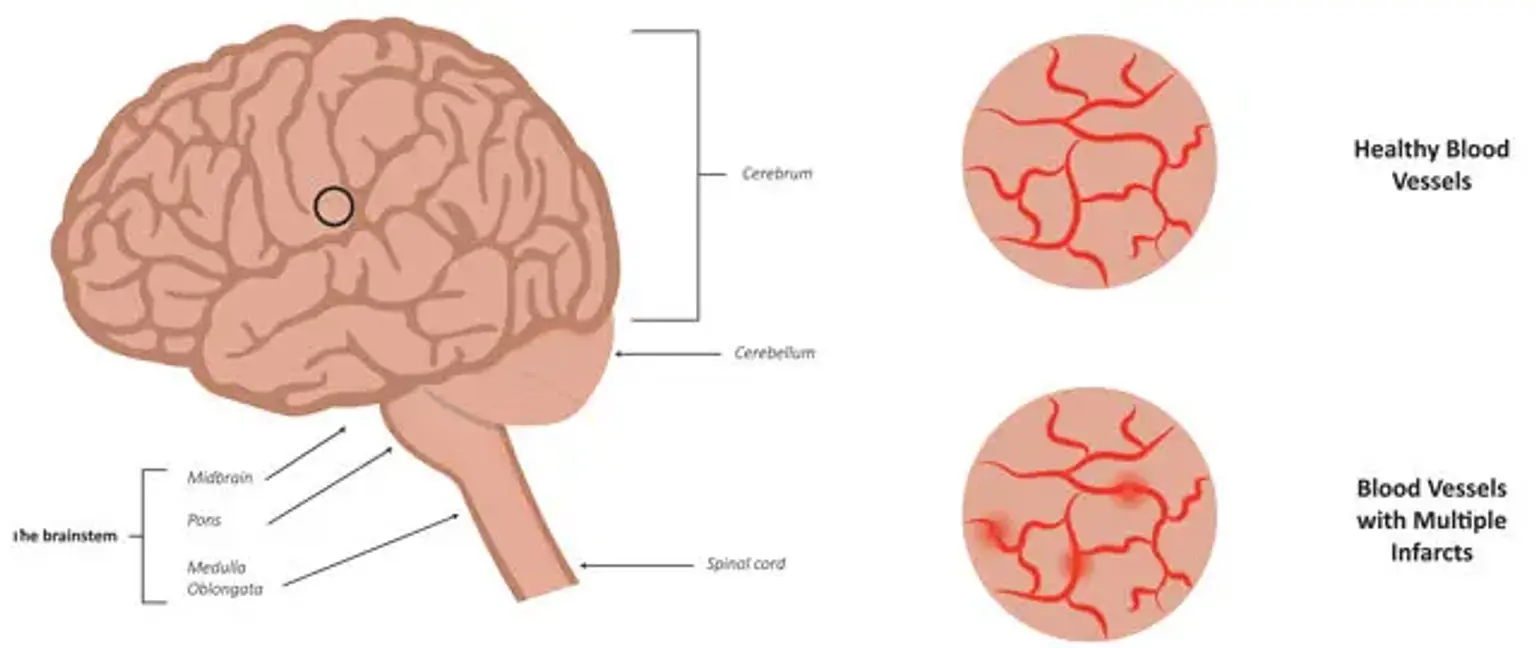Vascular Dementia
The term "vascular dementia" refers to a group of disorders that result in a loss of cognitive abilities. Individuals who have vascular dementia have difficulty reasoning, making decisions, and remembering things. Such changes might happen quickly or gradually and may be overlooked at first.
A blockage or shortage of blood supply towards the brain causes vascular dementia. The brain is deprived of oxygen due to the limited flow of blood. Even a short period without oxygen or blood can cause severe brain damage.
After Alzheimer's disease, vascular dementia, also known as vascular cognitive impairment, is the second most frequent form of dementia.
